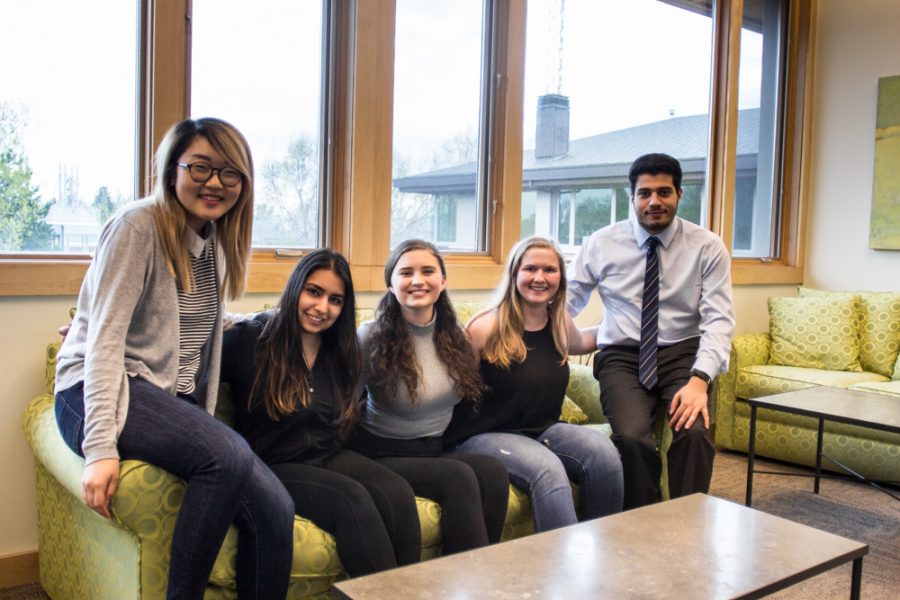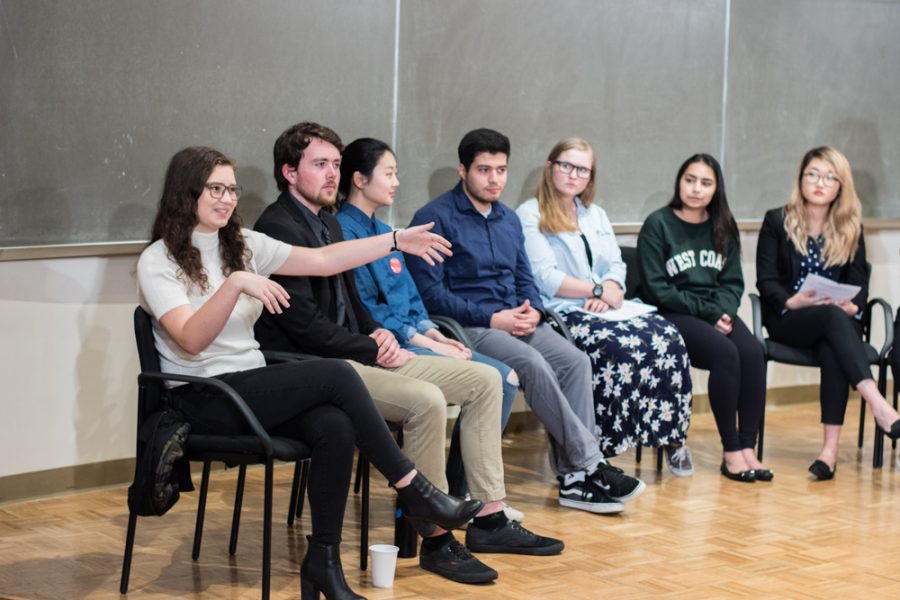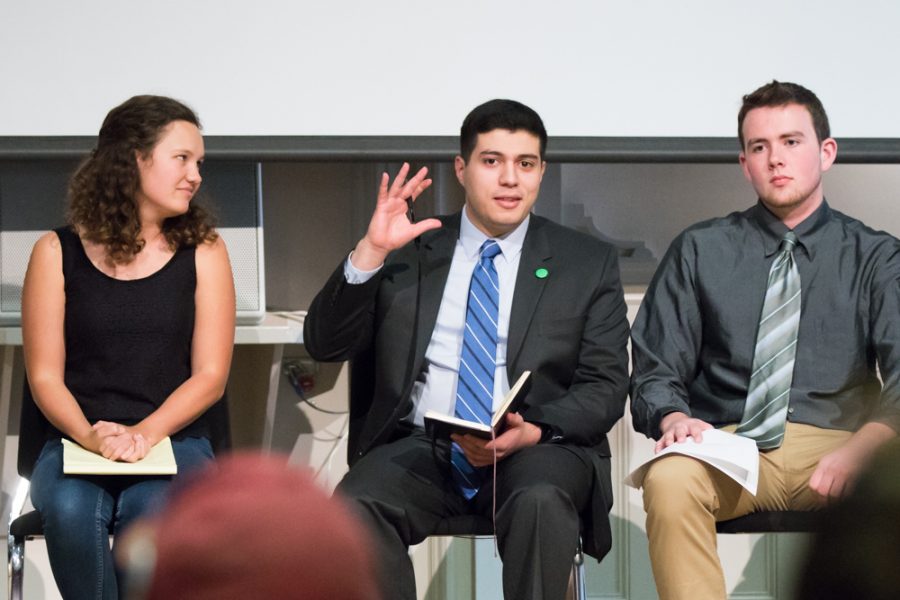Graduating seniors may soon have the right to vote in Executive Council elections.
In their meeting on Sunday, May 3, ASWC senate paved the way for an increase in future seniors’ voting rights, passing an amendment to the ASWC constitution to allow all members of Whitman’s student body to elect members of the Executive Council. Now the measure must pass a vote of the overall student body by a sixty percent majority to become an official ASWC law, and many senators speculate that this will be achieved.
The issue of senior voting rights has remained ambiguous and somewhat unresolved as of late, with junior and senior senators providing varying recollections of how the issue was dealt with in previous years.
“Institutional memory is not as strong in ASWC as it should be,” said Senior ASWC Senator Aisha Fukushima.
The passing of the proposed amendment overturns the senate’s decision of April 5, when a unanimous vote was needed to allow seniors to vote in this year’s EC elections. In April only one senator voted against the measure, causing it to fail. The same senator, senior Roman Goerss, voted against the measure this time. The measure still passed since only a majority was needed in this case, not unanimity, because time allows for a student body vote before next year’s EC elections.
Fukushima voted in favor of the amendment.
“The seniors have a vested interest in the upkeep of the school and all of the different ASWC institutions [after they leave],” said Fukushima. “There are a lot of arguments to take into consideration, especially given the fact that first-years who are coming in next year won’t be able to vote. I think it’s important to have a plurality of voices.”
Fukushima also acknowledged the rationale of the opposition, admitting that seniors will indeed be voting for ASWC officials who they will not see in office.
“There are people that say ‘Well, the seniors won’t be here next year,’ which is totally true,” she said. “[However], I think that seniors who feel invested [in ASWC] will vote, and I think that they can offer an informed vote in this process. It seems like my opinion is echoed in the senate.”
Sophomore Andrew Matschiner sided with opposing Senator Goerss on the issue.
“If [seniors] are not going to be around [the following year], it doesn’t seem to me that they should necessarily have a right to vote,” he said. “I don’t say this because I don’t like seniors, but if they’re not going to be on campus next year it doesn’t make sense that they should have a stake in what’s going on here at that time. But then that begs the question: ‘Should incoming first-years be able to vote?’ Ideally, incoming first-years would be able to vote too, because the ASWC officials being elected will affect their college experience, but unfortunately that’s impractical and difficult.”




